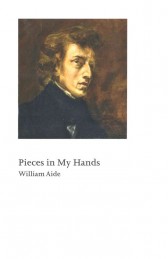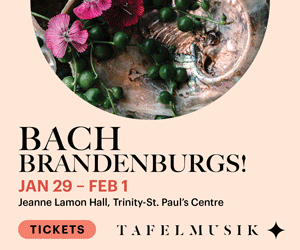 Pieces in My Hands
Pieces in My Hands
by William Aide
Oberon Press
87 pages, score reproductions, CD enclosed; $38.95 cloth, $18.95 paper
Canadian pianist William Aide has spent most of his illustrious career as a performer and teacher. Yet during the past 15 years he has published a memoir and two books of poetry. In this new collection of poetry he continues to confront the “habitable pain and pleasure” of life through the prism of music. While beguiling us with his distinctive poetic voice, he creates resonant images that deepen our relationship with the music itself.
At the heart of this collection are two sets of poems based on large-scale pieces by Liszt and Schumann. B Minor Sonata probes Liszt’s fascination with the Faust legend and its various implications. Aide’s cycle closes with a moving Coda, which begins:
Who’ve lasted through the days and nights
are shriven:
The theme of peace bestowed on humankind
Restores benignity, the pact re-signed,
With one D sharp, all sinners are forgiven.
Mephisto murmurs low his final warning,
memorial tremors, epic myths recede;
each pianist plays out of his human need
for abstract music’s deep abyss of meaning.
The poems based on Schumann’s Carnaval offer pithy evocations of the characters the composer created in these short pieces. They zoom, leap, waltz and laugh, reminding us that “suffering seems unreal once it has passed.” Each poem in these two cycles is printed facing a page from the piano score on which Aide has scribbled comments such as, “Love these stentorian BLASTS!”, “This page wearies with age …” and “Hard to bear this note.”
Composers like Chopin (as always) and William Byrd, pianists like Janina Fialkowska and Claudio Arrau, painters like Delacroix and Uccello, and writers like George Eliot and Günther Grass, along with specific events from Aide’s own life, are woven into the fabric of the remaining poems.
The CD included with this book is truly a bonus, since it offers the opportunity to hear the music that means so much to Aide as interpreted by the poet himself. Yet these poems do stand on their own, able to provoke, amuse, teach and move us quite apart from the music that inspires them.



